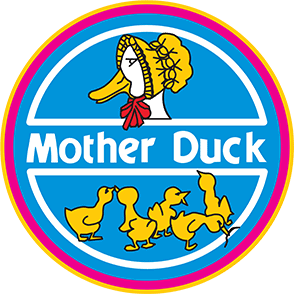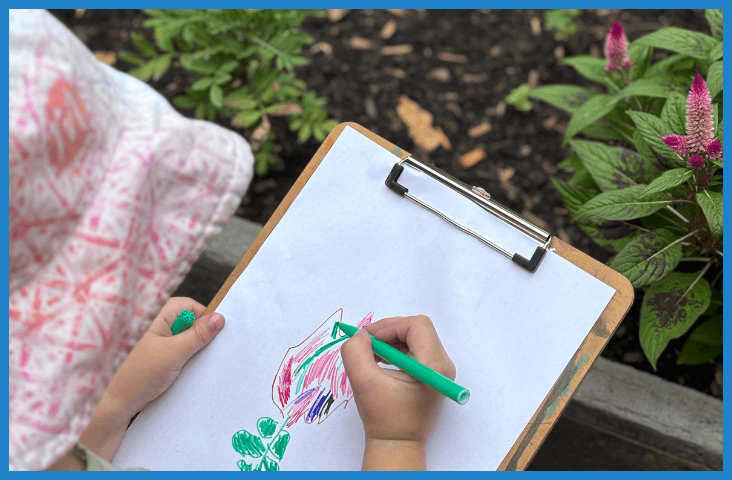
Changing our image of the child

As I mentioned in my last blog, there is a great deal of organisation for teaching and learning that goes on behind the scenes. This month I would like to share the way in which we, at Mother Duck Child Care and Kindergarten, have reconfigured the way we see children and the way we see our work.
In 2015 we began what we call the Reconfiguring Quality Project, a collaboration between myself, Karen Prestedge (Founding CEO of Mother Duck) and our Chairman, Denis Hinton, alongside our Committee of Franchisees. In part, we sought to reshape the approach in which our teaching and educating teams viewed children’s learning – and their teaching. Instead of offering children a series of ‘activities’ each day to keep them busy, we wanted to find ways in which children could become positioned as active participants in their play and therefore have more autonomy and agency in decisions about their play experiences.

To begin with, we asked the teaching teams to consider developing an image of the child that redefined the teaching and learning opportunities within our early childhood settings. To do this, many of us had to rethink what it meant for us to teach, and what it meant for children to learn. We also had to consider how the roles of both children and adults would need to change, to achieve more positive outcomes for children.
Since 2015, our teams have become much more in tune with the impact of changing their image of children and how this has helped them to see children in a new light – one where the environments for teaching and learning now better support all children in showing how just how competent and capable they are. I wonder if you can see from the photos below, just how much we have shifted our thinking in terms of what children can become within our curriculum?
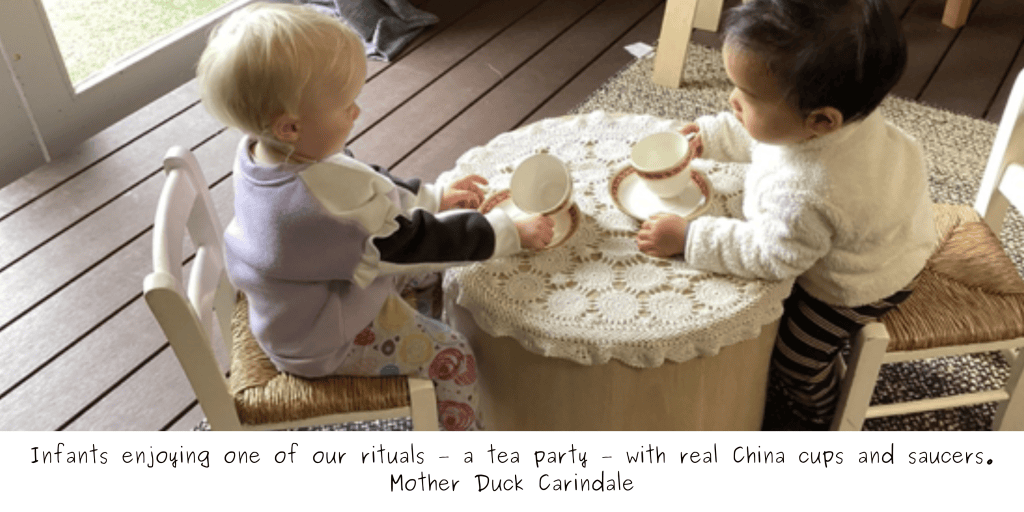
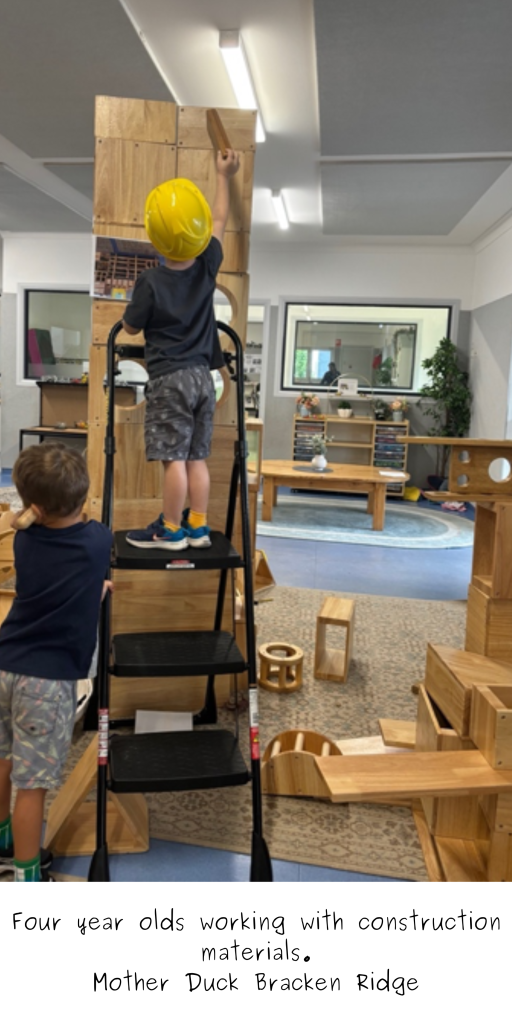
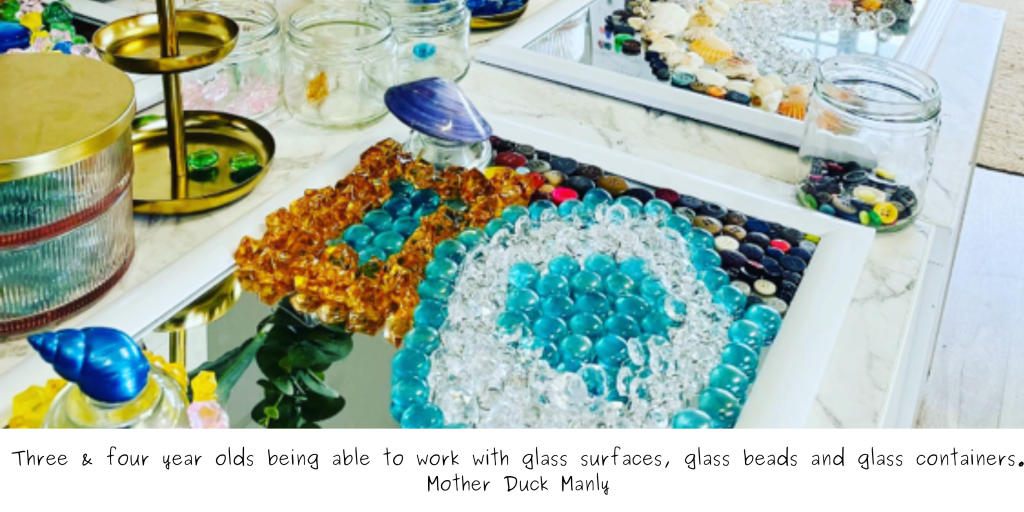
Of course, none of these shifts in thinking have happened overnight. Many years of work have only helped us to begin to understand just how important revising our image of child has become. Our teams strive to be very intentional and purposeful in upholding their image of child, just as Malaguzzi invited us to consider. Each Mother Duck setting now creates a revised image of child statement each year, or at a time when they believe they have understood how to change their teaching strategies in order for their image of child to come to life. The artefact below shows you how the image of child statement sits central to decision-making and the way in which each team captures their intentionality at each studio meeting (see my March blog for more on these meetings).
We ask at each meeting: “How are we working toward our aspirational image of child through appropriate teaching strategies and high expectations of children?”
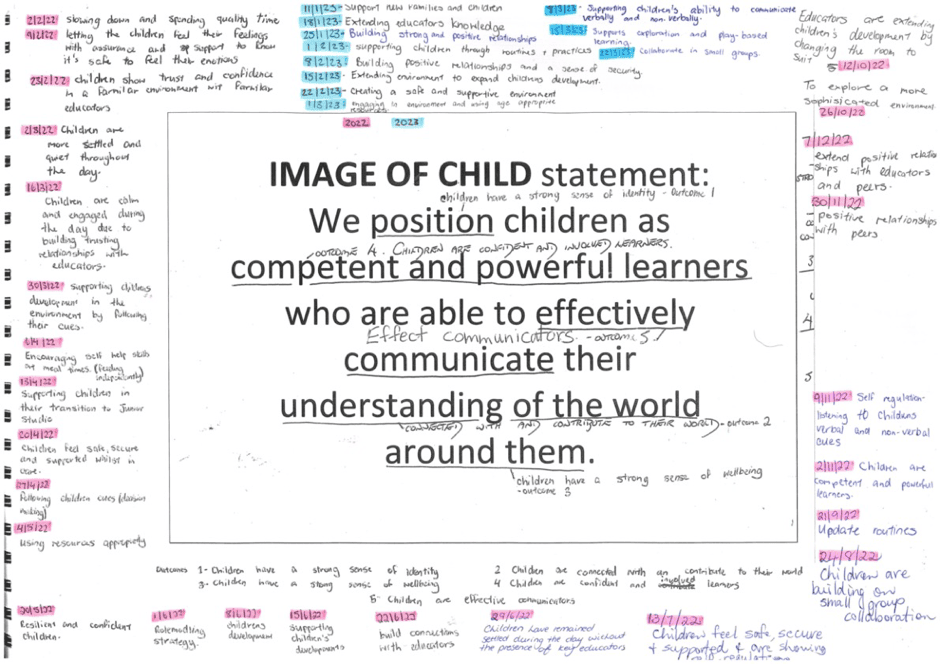
Our image of child has also impacted on how we present our physical environments in each of our centres. Some of you may have visited a Mother Duck setting in times past and noticed just how different our environments are now. Gone are the bright coloured walls and rooms filled to the brim with toys and actvities. Rather, we now seek to offer calm inviting spaces for children that help them to connect more broadly with the real world. Our Manly Centre kindly offered these contrasting photos of then (2015) and now (2024) – I’m sure you can see a big difference – all based on developing a strong and powerful image of child, over time.
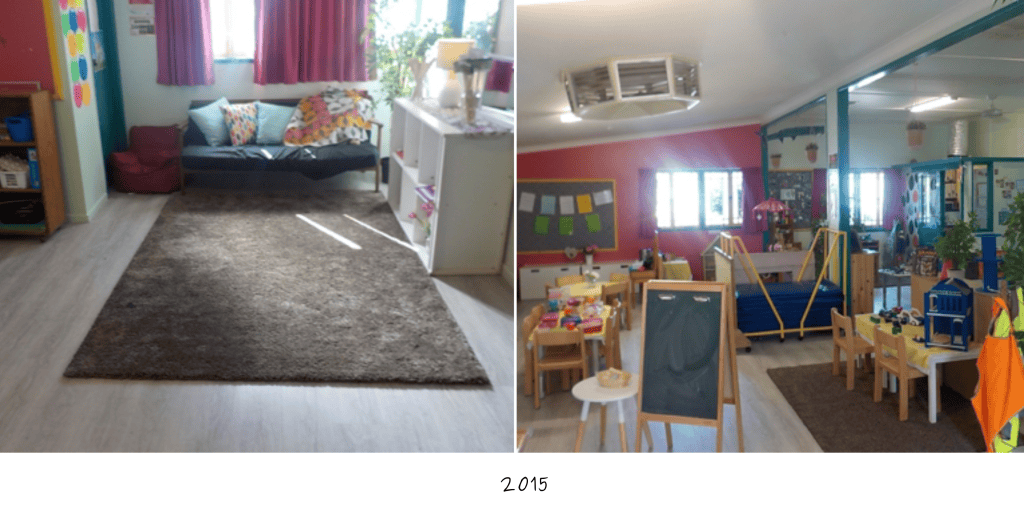
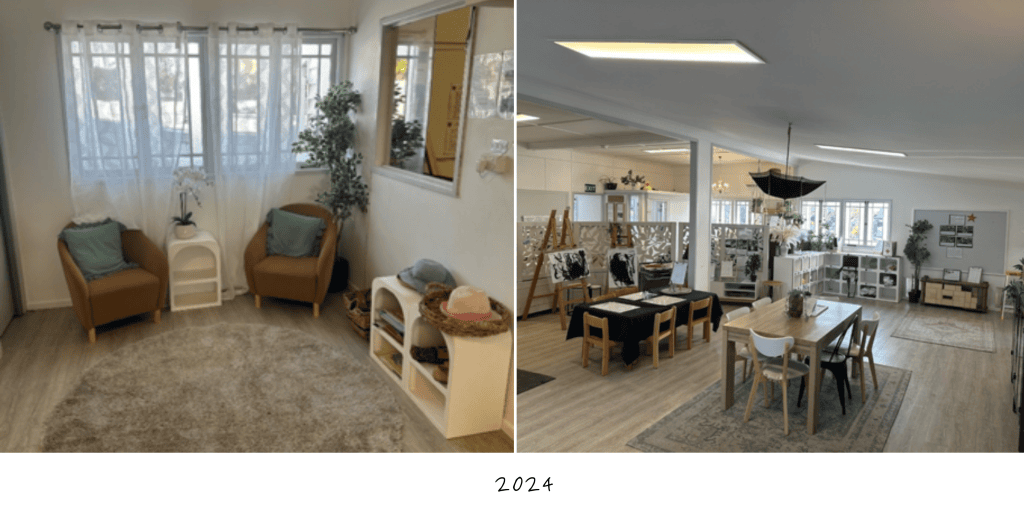
Please reach out to us if you would like further information on our work, and do look out for our Exhibition in September which will showcase many more examples of how our image of the child influences all that we do.

